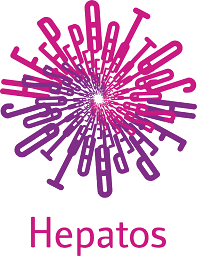Mobile InfoHep Centre
2022 Update

The Mobile InfoHep Centre (MIHC) is a mobile medical clinic that directly links patients to care services and is equipped with the latest diagnostic tools. It is manned by an expert team of local public health experts, physicians and civil society volunteers. As well as delivering awareness raising activities, MIHC provides testing, pre- and post-test counselling, liver elastography and a physician point-of-contact to link those diagnosed to appropriate treatment and care. This innovative model is the first of its kind and, to date, remains the most complete system of linkage to care in the Balkan region.
WHO?
The clinics are run by the Croatian Society for Liver Diseases “Hepatos” in collaboration with local public health experts and clinicians from local hospitals, as well as partner organisations with access to risk groups (i.e., prison inmates, people who inject drugs and war veterans) or isolated communities in rural areas or islands.
Why?

Hepatitis prevalence in Croatia is estimated at 0.6% (over 25,000 people) for HCV and 1% (close to 25,000) for HBV. Despite being at greater risk of liver damage, only 200 people are diagnosed every year on average. This is mainly explained by the lack of hepatitis awareness among patients and healthcare workers, as well as stigma and political turmoil. Additionally, healthcare access and uptake are often hampered by low awareness of hepatitis risk factors and symptoms, limited resources and geographical isolation (a large proportion of the population lives in rural areas or small islands)
How?
The MIHC travels to isolated areas and high-prevalence settings and is fully equipped with the latest testing tools including: free and anonymous saliva testing for HCV and HIV antibodies (100 samples can be tested at the same time and test results are available after 20 to 40 minutes), a mobile PCR machine which can confirm the RNA of the virus and run up to four tests simultaneously with results within 40 minutes, and a transient elastography (Fibroscan) to assess the liver damage of those diagnosed. The team also provided peer education to local GPs on how to identify at-risk individuals and on treatment opportunities. Additionally, counselling is provided to those infected and their families, and awareness raising efforts are carried out for people to learn about their liver health and avoid the risks associated with viral hepatitis.
Outcomes
Since MIHC started, the rate of hepatitis C diagnosis and linkage to care has greatly increased in the Split-Dalmatia County. So much so that the proportion of people in treatment has jumped from 16.5% in 2014 to 48.8% in 2018 and has maintained this level ever since. This significant increase in the diagnosis and linkage to care has led experts to promote and implement this good practice to the whole country.
Learnings / Recommendations
Inter-sectorial collaboration, joint action and teamwork prove to be successful tools to raise awareness and educate people and clinicians, and to improve hepatitis diagnosis and linkage to care. These tailored approaches help build trust among different population groups, and lead to better uptake of testing and treatment services. In addressing a highly stigmatized disease such as viral hepatitis, NGOs prove to have a considerable advantage compared to health authorities in helping people overcome their initial resistance to discuss liver health. Additionally, MIHC’s mobility helped reach people in high-risk settings and isolated places.
Funding
Public and private funding.
Contact
Tatjana Reic, Hepatos President
Telephone: +385 98 903 2487
Email: tatjana@hepatos.hr; hepatos@hepatos.hr